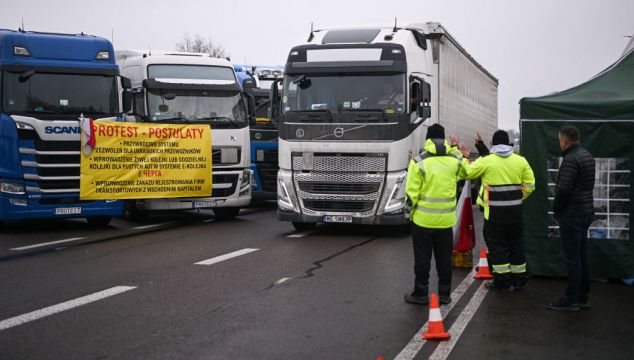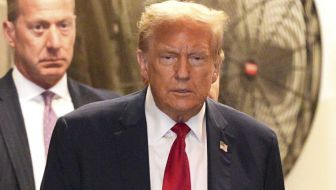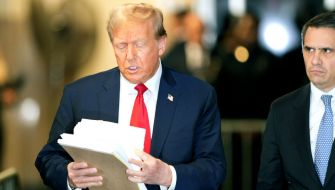Polish truckers have been protesting near several border crossings with Ukraine over what they see as unfair competition from their Ukrainian peers, as well as hurdles for European Union truckers operating in Ukraine.
The protesters in Poland, an EU member state, have been blocking access for trucks moving commercial goods and letting only a handful of trucks pass per hour. Exemptions include humanitarian items, perishable goods and military supplies for Ukraine, which is not in the EU.
Here are the main information about the protest:
When did it start?
Polish truckers started their protest on November 6th, demanding that the EU reintroduce a permit system for Ukrainian truckers entering the bloc and for EU truckers entering Ukraine.
The permit system was lifted after the EU and Kyiv signed an agreement on June 29th, 2022, four months after Russia's full-scale invasion of Ukraine.
On November 27th, the truckers were joined by farmers who started a round-the-clock blockade of access to one of the busiest border crossings with Ukraine, Medyka.
Four out of eight road crossings are being blocked, leaving lorries stranded for days in queues that stretch for miles. The protesters are restricting movement in both directions near three crossings and Ukraine-bound traffic near the fourth.
What are the truckers demanding?
- Reintroduction of a mutual permit system for Ukrainian and EU road haulage operators moving goods between Ukraine and the EU, with exemptions remaining in place for humanitarian aid and military supplies for Ukraine.
- Exemptions allowing empty EU trucks re-entering the EU from Ukraine not to register in the Ukrainian electronic queuing system, which is being applied uniformly to fully loaded EU trucks as well as empty ones, causing unnecessarily long waiting times for the latter.
- Enforcing existing EU legislation which permits Ukrainian haulage companies to move goods to and from Ukraine but not local carriage between or within EU member states.
- A ban on registering haulage companies by entities from outside the EU, with a particular focus on countries east of Poland, and a review of such businesses already operating.
What does Ukraine say?
Ukraine has said it wants its export routes via Poland to be unblocked before it holds talks with Warsaw and the European Commission, the EU executive, aimed at ending protests.
Kyiv has said it will not compromise on licences for Ukrainian drivers, one of the protesters' main demands.
The European Business Association in Ukraine said last week that accumulated losses from the blockade had reached over 305 million hryvnias ($8.5 million), hitting both exporters and importers.
Taras Kachka, Ukraine's trade representative and deputy economy minister, told Reuters the protests would reduce Ukraine's overall imports by about a fifth in November, compared to October, and could cost Kyiv one percentage point of GDP growth if they drag on.
EU involvement
European transport commissioner Adina Valean said on November 29th that Ukraine and the EU cannot be "taken hostage" by the Polish truckers blockading the border. The situation is "unacceptable" and Brussels reserves the right to intervene in ensuring rules are respected and the law applied, she said.
Polish politics
The commissioner also complained of a lack of involvement by Polish authorities in trying to resolve the conflict.
Poland's president on November 27th swore in a government under the Law and Justice (PiS) party that finished first but lost its majority in an October 15th election. Prime minister Mateusz Morawiecki said the permits system worked well and that his government would push to get it reinstated.
But his government is not expected to win a vote of confidence in parliament, and an alliance of pro-European parties that has a parliamentary majority is expected to form a government under pro-EU Civic Coalition leader Donald Tusk.
This means Poland is unlikely to have a stable government before mid-December, complicating efforts to find a solution to the truckers' dispute.







